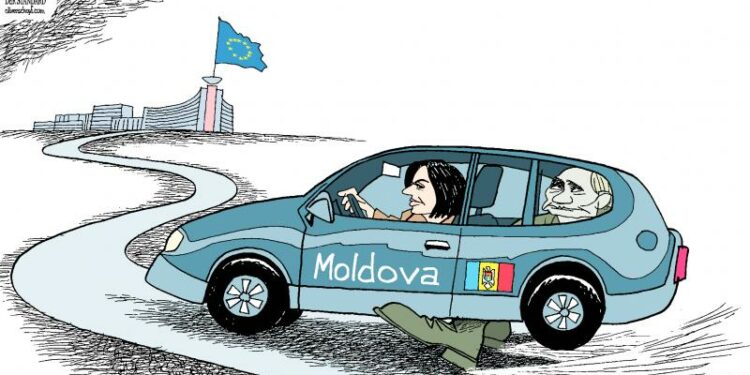There was a slight scare for Moldova’s European aspirations on 20 October, when two crucial elections for the future of the country took place: the presidential election and a referendum on integration with the European Union.
Outgoing President Maia Sandu (Action and Solidarity Party, centre-right) came out on top in the first round of the presidential election, with 42.31 percent of the vote. The pro-European candidate, who was up against eleven other candidates, will have to face Alexander Stoianoglo (pro-Russian opposition, 26.7 percent of the vote) in a difficult second round on 3 November.
In the referendum on European integration, the Yes side won by a hair’s breadth, with 50.41 percent of the vote, largely due to the involvement of the large, largely pro-European Moldovan diaspora.
The surprisingly close contest – polls had predicted a slightly bigger lead for the Yes side – was partly explained by the Moldovan authorities’ accusations that Russia was trying to meddle in the elections in favour of the pro-Kremlin opposition. Although these attacks have not yet been backed up by evidence, they echo the many investigations of recent months that have revealed a vast network of pro-Russian interference within the country.
Receive the best of European journalism straight to your inbox every Thursday
We hope you enjoyed this article.
Would you consider supporting our work? Voxeurop depends on subscriptions and donations from its readers.
Discover our offers from €6/month including subscribers-only benefits.
Subscribe
Or make a donation to bolster our independence.
Donate
Source link : https://voxeurop.eu/en/moldova-maia-sandu-putin-russia/
Author :
Publish date : 2024-10-23 10:10:00
Copyright for syndicated content belongs to the linked Source.


